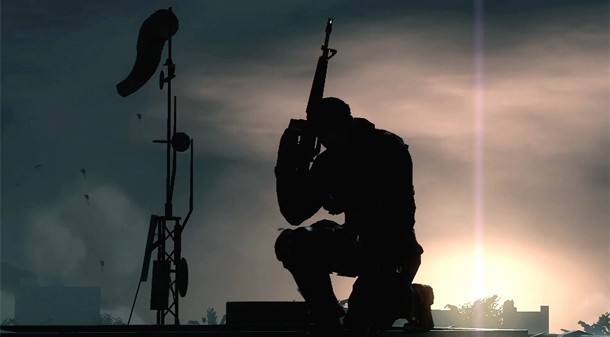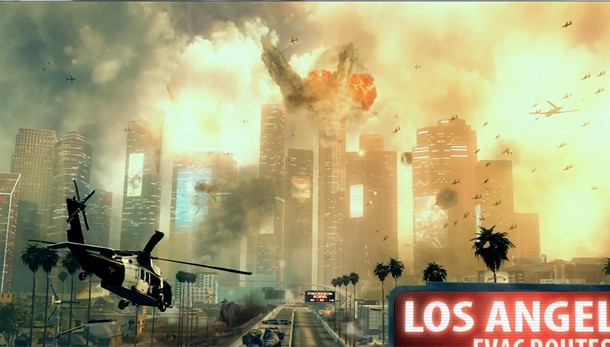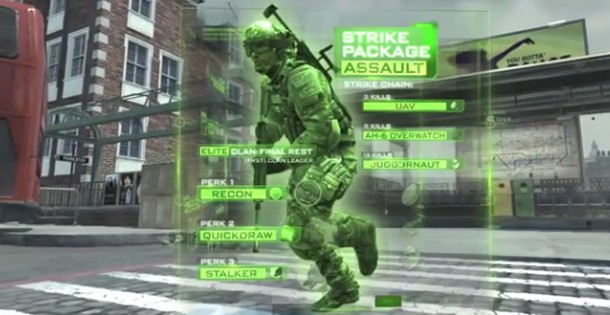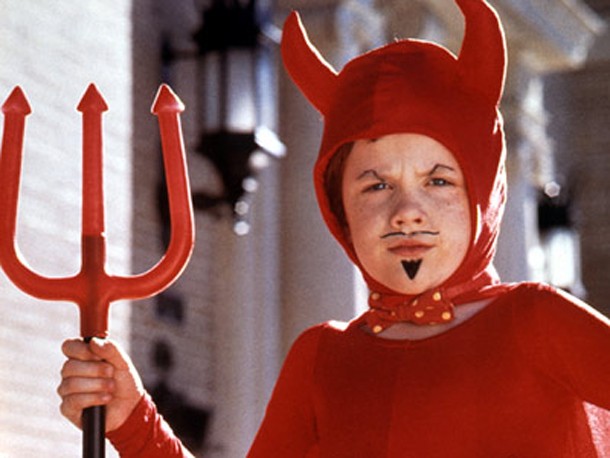Defending Call Of Duty

About a month ago, I was scrolling through the comments on one of our stories about Resident Evil 6. As anyone who has ever used the Internet can attest, you’re bound to run into some misguided statements and opinions in the comments section of any website. One in particular irked me as I read the negative reactions to the Resident Evil sequel. I couldn’t find the particular comment now, but it was along the lines of “man **** Capcom, this game is as bad as Call of Duty now.” It’s not a particularly noteworthy comment, and I’ll go ahead and ignore the fact that (as much as I dislike it) Resident Evil 6 doesn’t resemble Call of Duty at all. However, it did get me thinking about the general climate of opinions on the most successful series in gaming today. Call of Duty isn’t perfect, but I feel that the widespread hate towards it is entirely unjustified. Here’s why.

Big Doesn’t Equal Bad
A certain portion of the population loves to rag on things that are successful, and that’s not confined to gaming. It doesn’t matter if it’s McDonald’s, Walmart, Apple, or Lady Gaga. Anything or anyone that becomes a massive name in their field or industry has to expect a certain amount of criticism.
When the first Call of Duty released in 2003, it received a very different reaction from “hardcore” gamers than it does on the message boards and comment sections in 2012. Its intense action and tight controls won it several game of the year awards, and the series' debut was a huge success critically and commercially. Its sequel continued this wave of success as an Xbox 360 launch game. Despite a disappointing third entry in the series, Infinity Ward came back with a juggernaut in the form of Call of Duty 4: Modern Warfare.
I point to this game’s release as the turning point for the series’ perception amongst the average gamer. Modern Warfare was so well-received and so successful that it began to turn off gamers that find it cool to crap all over whatever the most popular flavor of the day is. Because of this, you started seeing the first traces of venomous comments and reactions as soon as the series moved forward past this entry.
The turning tide of opinion at this point is due to many factors. Some gamers didn’t like the idea of Treyarch (developers of the sub-par COD 3) being behind another entry in the series after Infinity Ward took it to such insane heights. Others were understandably fatigued by World War II games, and were disappointed in World at War’s return to the era. Another factor was fear that Activision would milk the creativity and freshness of the series with annual installments. While it's no fault of Activision, after the first Modern Warfare moved the bar forward so aggressively that every shooter, from its chief rival Battlefield to failures like Homefront, have aped the single-player trademarks. This undoubtedly contributes to an overall sense of shooter fatigue in some gamers.
All of these were (and many still are) legitimate fears and complaints. However, they ignore one key factor: these games are still fun. They’re highly polished thrill rides that make no attempt to ignore their status as the Jerry Bruckheimer movies of the gaming industry. All of the elements of the original Call of Duty that hardcore gamers loved are still present in the series. The only difference is, it’s turned into a massive sales force. Hating on successful things comes easy for message-board trolls, but the series has made few genuine mistakes. Successful properties and companies are successful for a reason – they’re doing things right.

Like It Or Not, It’s Evolving
A series can lose its luster if gamers feel like subsequent installments aren’t offering substantial improvements. Activision learned this with Tony Hawk and Guitar Hero, two series that saw huge success followed by a drastic downfall. Those franchises caused their own undoing by failing to offer new experiences. An open-world Los Angeles or a story-based rock star campaign doesn't mean much if you’re still doing the same flip tricks and guitar solos that you’ve been doing for years.
The “it’s the same thing every year” argument is understandable with those franchises, but it doesn’t hold up very well when people complain about Call of Duty. While not every Call of Duty game has made the big sea changes introduced in the first Modern Warfare and Black Ops, each and every entry has at least made meaningful changes and tweaks to the tried-and-true formula. While the controls tend to feel similar and the campaigns are always filled with over-the-top setpiece moments, smart changes have been made frequently.
Let’s zero in on one particular mechanic in the series: killstreak rewards. These were introduced in the first Modern Warfare and allowed you to call in UAVs, airstrikes, and helicopters. Cut to Modern Warfare 2, and the entire system is completely different. Instead of predetermined rewards for three, five, and seven kills, players were free to assign a variety of rewards (fifteen in total, five times the first MW’s count) to three different kill counts.
Moving forward to Modern Warfare 3, Infinity Ward wanted to reward players for more than just selfish kills. They introduced new strike packages, which gave different rewards to different playstyles. Offense-minded players were still rewarded for kills with crazy attacks, but team players could opt for a different path. This support package gave out its rewards after players performed team-oriented actions like flag captures. Black Ops II improves upon MW3’s sentiment by giving out their killstreaks based on an overall point count, omitting kills entirely.
That’s just one small aspect of the series’ multiplayer, and it’s seen numerous changes throughout the recent installments. Plenty of major additions and changes have been made over the years, whether it’s co-op Spec Ops missions, the new currency system in Black Ops, or the wildly popular zombie modes in Treyarch’s entries.
Out of all the arguments used by the trolls, the “it’s the same thing every year” one is the most objectively false. Go ahead and accuse Guitar Hero, Madden, and Dynasty Warriors for becoming stagnant, but not Call of Duty. Each entry has its own distinct feel and features, which is admirable considering the franchise would continue to sell just fine (for a while, at least) even if it didn’t evolve the way it has.

Misconceiving The Crowd
We all know the stereotype of the kid that’s playing Call of Duty online. He’s about 12 years old, he finds great joy in blurting out any and every homophobic or racist slur, and he has had filthy sex with your mother (or so he claims). He exists. In fact, this kid exists by the thousands, and he's the reason that most adult gamers I know play with every other nonparty player muted. However, with millions upon millions of Call of Duty fans, these kids are clearly not the only ones that make up the series’ crowd.
I got the idea for this article after talking to the caretaker at my new apartment building. It was our first time meeting, and he asked me a bit about my job. After explaining what I do at Game Informer, he mentioned that he has an Xbox 360 but barely any time to play. When I asked him what games he did like, he said the one series that always got him excited was Call of Duty.
I’ve only had a few conversations with this guy, but I’m confident that he’s not a Mountain Dew-chugging, foaming-at-the-mouth 12-year-old racist. Rather, he seems like a quiet and intelligent guy in his mid-to-late 20s whose schedule doesn’t allow for constant gaming. If you happened to drop into some Modern Warfare 3 multiplayer tonight, you probably wouldn't notice his presence amongst the screaming and cursing of the stereotypical crowd. People like him are there, though. You may immediately notice the four or five awful kids that are delighting in calling you gay, but you don’t hear the ten other guys that are just there to play a good game.
A guy like my caretaker is probably drawn to the series because of its quality, but there’s another major factor that goes into its appeal...

Bang For Your Buck
Those same gamers that spam comments sections with anti-COD sentiments are often the same ones that complain about paid DLC. They’re quick to claim that publishers are putting out “incomplete” products because they want to nickel-and-dime consumers. If built-in content is what they want, then they should take no issue with Call of Duty. Recent entries in the franchise have started to introduce more DLC, but they still feature a staggering amount of content on the disc on day one.
Think about what you’re getting for your $60 with a Call of Duty game. You get an intense and digestible single-player campaign. Depending on which entry you’re buying, you could team up with a buddy or three to knock out Spec Ops missions or take down hordes of zombies. Most importantly, you have one of the deepest and most replayable multiplayer components of any game on the market.
Hardcore COD fans sink hundreds of hours into each and every entry, and that’s because there’s simply so much to do. If you’re a casual fan or just want to mess around, hop into a quick round of Gun Game and have a blast. If you’re more well-versed in multiplayer FPS games, hop into some ranked matches and work towards a Prestige or two. The most hardcore fans are also accounted for, as Call of Duty Elite features insane amounts of stat-tracking and the newer entries of the series have started introducing elements tailored for e-sports play. No matter what your level of FPS experience is, Call of Duty is accessible and fun. It can just as easily be played in ten-minute chunks of time or five-hour marathons.

Why Would Activision Do Anything Differently?
As a publicly traded company, it isn't Activision’s job to make sure you’re not mad about how frequently they release games. It is a business, and its goal is to make money. Call of Duty makes billions of dollars for the company, so why wouldn’t Activision continue to strike while the iron is hot? It knows it's running the risk of franchise fatigue, as it learned the hard way with Tony Hawk and Guitar Hero. However, those series never put up the numbers that Call of Duty does. Until the sales numbers start to dip and give reason for concern, you can’t blame Kotick & Co. for continuing to do what’s best for their bottom line. What matters going forward is how they do respond to that inevitable year of sales decline. If Activision and its developers continue to follow the same strategy and burn fans out on the franchise, they have no one to blame but themselves. If they do the right thing and make smart choices about the series’ future, then it could possibly move forward in a different form. For now, they don’t have anything to worry about. One look at the sales numbers for the last several entries makes that perfectly clear.
It’s important to note that I’m far from a Call of Duty fanboy. Hell, I gave Battlefield 3 and Halo: Reach higher scores than I did Modern Warfare 3. Despite this, I’ve had a lot of fun with the series for many years. Working for Game Informer, I see countless comments and posts that are aggressively anti-Call of Duty. Most of them are way off the mark, so I wanted to give the series credit where credit is due.









